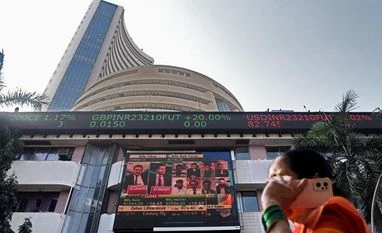Foreign investors have put in Rs 11,500 crore in the Indian equities so far this month, mainly driven by bulk investment from the US-based GQG Partners in the Adani Group companies.
Going ahead, FPIs may take a cautious stance in their approach in the coming days following the collapse of the US-based banks -- Silicon Valley Bank and Signature Bank -- that dented sentiments in the market, experts said.
According to the data with the depositories, Foreign Portfolio Investors (FPIs) invested Rs 11,495 crore in Indian equities till March 17.
This came after a net outflow of Rs 5,294 crore in February and Rs 28,852 crore in January. Prior to that, FPIs infused a net amount of Rs 11,119 crore in December, data showed.
"This (inflow in March) is inclusive of the bulk investment of Rs 15,446 crore by GQG in the four Adani stocks," V K Vijayakumar, Chief Investment Strategist at Geojit Financial Services, said.
Excluding this, FPI activity in equities represent a strong selling undercurrent.
Also Read
In the calendar year 2023, FPIs have sold equities to the tune of Rs 22,651 crore.
Himanshu Srivastava, Associate Director - Manager Research at Morningstar India, attributed the latest inflows to better prospects of Indian equities over longer time frames.
Although, like many other countries, India has also been going through a rate hike cycle given high inflation levels, it is still perceived to be relatively better placed with respect to macro conditions compared with other markets.
On the other hand, FPIs pulled out Rs 2,550 crore from the debt markets during the period under review.
In terms of investing in sectors, FPIs have been consistent buyers only in capital goods.
In financial services, FPIs have been alternating between buying and selling in different fortnights. Since risk off is the dominant market mood now following the bank failures in the US and fears of contagion, FPIs are unlikely to turn buyers in the near-term, Geojit Financial Services' Vijayakumar said.
(Only the headline and picture of this report may have been reworked by the Business Standard staff; the rest of the content is auto-generated from a syndicated feed.)
)